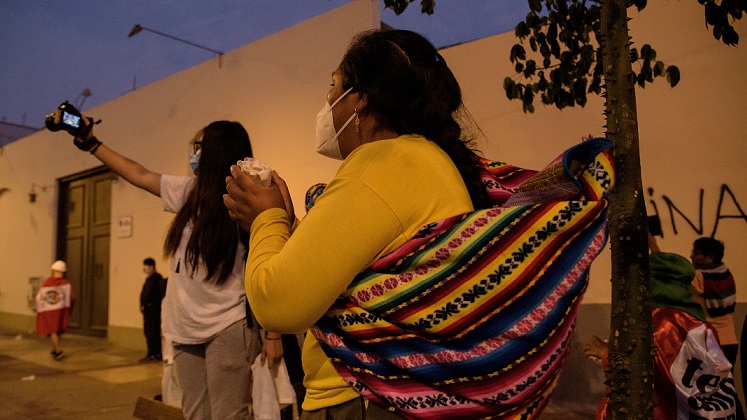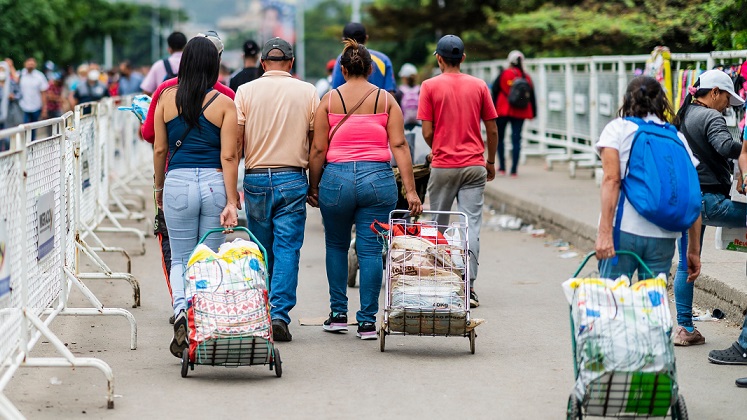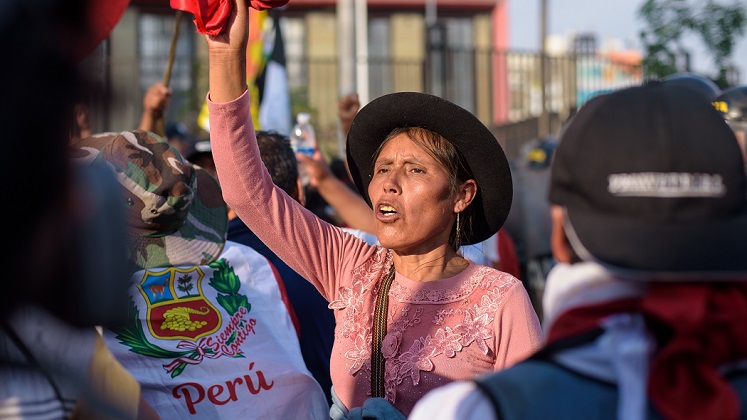
 Covid-19 in El Salvador has created a serious tension between public health and social control. Recent interventions may reduce disease transmission, but they come with significant costs for social cohesion. Measures introduced to contain the spread of the virus have also left politically and economically marginalised groups vulnerable to human rights violations, write Amaral Arévalo (Universidade do Estado do Rio de Janeiro) and Clare Wenham (LSE Health Policy).
Covid-19 in El Salvador has created a serious tension between public health and social control. Recent interventions may reduce disease transmission, but they come with significant costs for social cohesion. Measures introduced to contain the spread of the virus have also left politically and economically marginalised groups vulnerable to human rights violations, write Amaral Arévalo (Universidade do Estado do Rio de Janeiro) and Clare Wenham (LSE Health Policy).
• Disponible también en español
In 2019, the presidency of El Salvador was occupied by the former mayor of San Salvador Nayib Bukele, who had recently been expelled from the left-wing Frente Farabundo Martí para la Liberación Nacional party (FMLN). This political shift came on the back of almost 20 years of post-conflict reconstruction following a 12-year civil war. In the 1990s and 2000s, right-wing governments implemented neoliberal policies that the FMLN then attempted to reverse between 2009 and 2019.
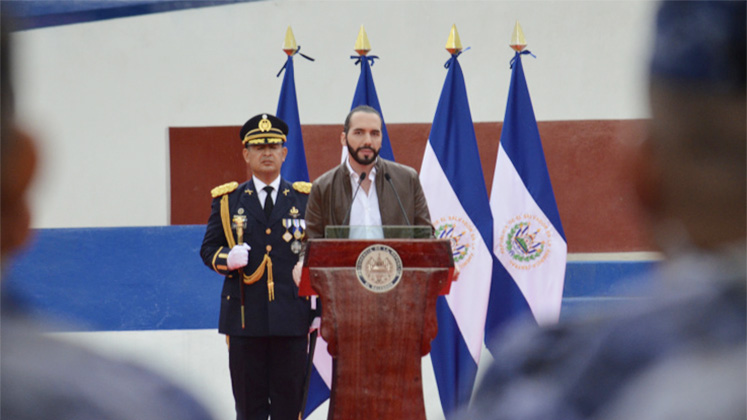
Upon assuming office in June 2019, Bukele began a process of “purification” within government, which essentially meant eliminating many policies and social programmes created by the FMLN. Despite campaigning under the slogan “let’s make history!”, this and other actions have been more like “the same old story” of Salvadoran politics.
On 9 February 2020, Bukele called for a “people’s uprising” to pressure parliament into supporting a loan of US $109 million towards his crime-busting Territorial Control Plan. In the presence of his followers and the Salvadoran military, summoned to witness the capture of congress, Bukele occupied the seat of President of the Legislative Assembly and prayed, revealing that God had pleaded for him to be patient with the nation’s congressmen.
This was seen by many national and international observers as a failed self-coup, with Bukele compared to the Salvadoran strongmen of the nineteenth century.
Public health measures or social control?
It was against this tense political backdrop that Covid-19 emerged in El Salvador.
On 23 January 2020, the Ministry of Health declared an open-ended national health emergency. This was the first of a series of measures designed to contain the spread of Covid-19 within the country. However, the strategy changed significantly in early March when Bukele himself took direct control of containment efforts. The executive has increasingly introduced more restrictive measures ever since:
- 30 days of mandatory quarantine for nationals and residents upon entering the country
- An entry ban on all foreigners
- The closure of the airport and of borders
- The declaration of a state of exception (15 March)
- Mandatory domestic quarantine (22 March)
In this way, initial health measures have morphed into a regime of restrictive measures far harsher than those introduced elsewhere in the Americas.
To implement such measures, the government has deployed an ambiguous communication strategy, allowing the revival of military action under the pretext of combating the virus. Anyone carrying the disease has become a new “enemy within”.
Nor are these simply empty words. In the first three days of the state of emergency, the government detained 607 people, treating them as criminals and placing them in police cells. On 6 April, Bukele called for even more stringent containment. His proposal that security forces should “do some arm-twisting” appeared to give tacit permission for any arbitrary action that they might choose to engage in.
Given this situation, NGOs filed a petition for habeas corpus in an attempt to limit human rights violations by security forces. In light of the “arm-twisting” declaration, the Supreme Court of Justice released an addendum which read:
…neither the police nor the Armed Forces are authorised to make discretionary or arbitrary arrests, nor to injure people unjustifiably during such procedures … in an emergency – or in this case a pandemic – and even in establishing the emergency regime, the military must abide strictly to the authorisations imposed on it by the constitution …
Containment centres and coronavirus
In contrast to this wider regimented tone has been the improvised establishment of containment centres to house those who entered the country prior to the border closures. The buildings utilised were intended as shelters during hurricanes, earthquakes, and volcanic eruptions. As such, they do not offer the conditions for the kind of social distancing required to reduce the spread of a highly infectious disease.
On 18 March, a week after they were first opened, the first case of Covid-19 was detected in one of these containment centres. By the time of writing (8 April), this had increased to 103 cases.
It is highly likely that the spread of the infection inside these centres is a result of the government’s failure to implement the infection-control protocols recommended by the World Health Organization. These include:
- testing
- containment
- isolation
- social distancing
- deep cleaning
Those detained within these centres soon began to complain about the mixing of positive cases with those who had tested negative or had yet to be tested. Some even built barricades to stop more people from being placed in these already crowded conditions. Such mixing and overcrowding would fly in the face of public health recommendations, creating a severe tension between health and human rights. In light of this situation, some hotels have been repurposed as containment centres, with people housed in groups of four per room as they undergo quarantine.
By 8 April 2020, El Salvador had seen five deaths linked to Covid-19. Three of these deaths, however, were likely the result of systematic institutional neglect. It is alleged that Óscar Méndez, for example, was not treated despite repeatedly making clear that he had a urinary infection. According to their own testimony, his family themselves were prevented from providing him with the medicines that he needed during his time in the containment centre.
The Ministry of Health reported the cause of death as respiratory failure, but the autopsy was carried out with a strong military presence amidst confusion over the role of the Institute of Legal Medicine. The results have yet to be released.
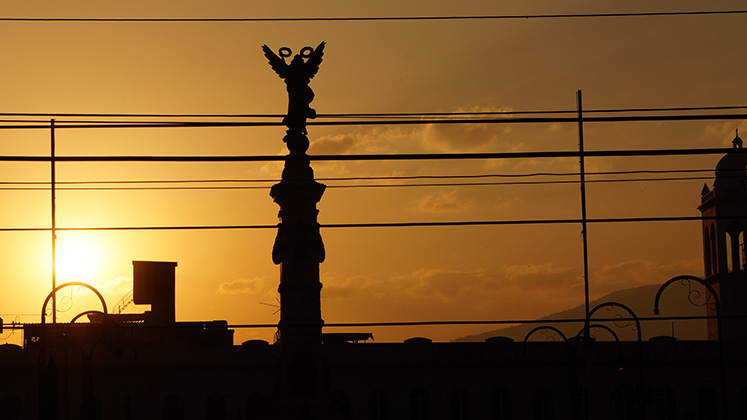
Community infection
Community transmission of the disease was initially concentrated in rural areas. Many cases were linked to recent return migration of Salvadorans who had left rural areas for developed countries in search of better living conditions.
Metapán, in the west of the country, was the first place to detect community transmission. The assumption was that a migrant must have entered through a blind spot in border control, given that the borders were shut, and thus the new arrival was not detected and placed in a containment centre as per government policy. When this case was discovered, the government implemented a cordon sanitaire for 48 hours to contact trace and follow up any other potential cases in the municipality
Community infection in and around San Salvador, meanwhile, is predominantly linked to those people who work in containment centres and hospitals treating patients with Covid-19.
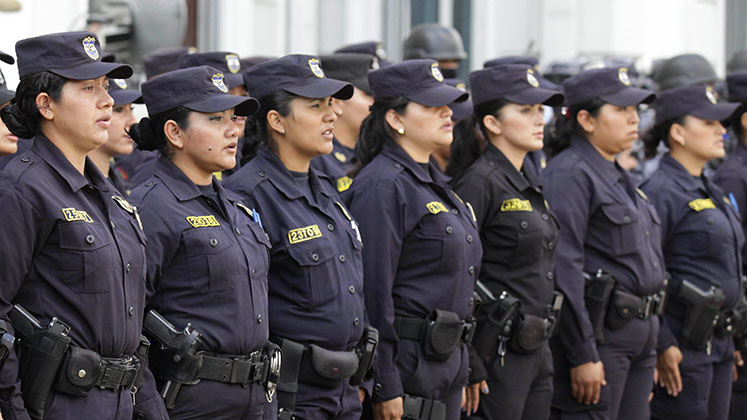
This cordon sanitaire was extended to the whole nation on 6 April. This measure represents an attempt to reduce community transmission through combined health and security initiatives that identify and isolate those who have come into contact with infected people. Those detained are monitored for development of symptoms over five days; those who do not develop Covid-19 will be able to return home, whereas those who test positive will be subject to the relevant medical protocols. In essence, the aim is to break the chain of community transmission.
In all fairness, this would be an ideal response from a purely public-health perspective. The problem is that most governments and health systems do not have the capacity to implement such a response, and that includes El Salvador. Will Bukele manage it? At what cost? Who will be most affected by these measures?
Structural problems and silent epidemics
Beyond containment centres, mandatory quarantine within the home is exposing structural problems and other silent epidemics.
The majority of the Salvadoran population subsists thanks to informal labour, particularly women. Not working for 30 to 45 days would leave most Salvadorans struggling to feed themselves.
Moreover, El Salvador has a silent epidemic of violence against women. For many women staying at home means suffering physical, psychological, or sexual violence, and this without access to sexual and reproductive health services. Since the beginning of lockdown, there have been five deaths linked to Covid-19 but also four cases of femicide.
The LGBTI+ community too has been rendered invisible by government policy despite having suffered numerous physical and sexual assaults, including within Covid-19 containment centres. The executive has dismissed critics of these attacks as opportunistic political opponents. At the same time, Bukele’s more extreme supporters carry out virtual attacks on those who criticise the president’s strategy to date.
Overall, if we evaluate the effectiveness of the measures taken in El Salvador from the perspectives of public health and social control, it is clear that such draconian measures do not cut off transmission of the virus, but they do have significant political costs for social cohesion.
The government, under the aegis of “containing the spread of the virus” within communities, has intensified restrictive measures that violate the human rights of groups long excluded from the country’s political and economic system. Ultimately, it appears that these groups of poor, women and LGBTI+ have become disposable objects for policymakers in El Salvador.
Notes:
• The views expressed here are of the authors rather than the Centre or the LSE
• Please read our Comments Policy before commenting


